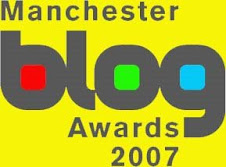A date's been set for Iraq's general election. It'll be held early next year, on January 21st. There's been a hold up in announcing the final date because of disagreement over the status of the city of Kirkuk. Although a deal's finally been reached, the row offers a glimpse of how the politics of Iraq will shape up after the Americans and the rest have gone. Unsurprisingly, it's all about oil.
About 8 percent of the world's oil is under Iraq. And an awful lot of that is in the north of the country, the mainly Kurdish area of which Kirkuk is the traditional capital. Various ethnic groups have been drawn to the city over the last century, most notably when Arabs were resettled there by Saddam Hussein during the 1980s in an attempt to keep his Kurdish enemies at bay. Since he was ousted in 2003, Kurds have been flooding back again. So now we have a multi-ethnic city in an unstable country with a lot of oil underneath it. No prizes for guessing why this might be problematic.
The dispute was that the Arabs wanted to stick to the 2004 electoral roll (which would favour them) while the Kurds wanted a new one (which would favour them). The compromise is that a parliamentary committee will monitor the election results and, if those aren't in line with the expected demographics, they could be challenged. Ultimately, this should help ensure all of the ethnic groups are adequately represented as the future of Kirkuk (and its oil) is decided.
This deal has done little more than buy some time. Disagreements between the Kurds, Arabs and other interested parties will probably flare up again when the really tough decisions finally have to be made. But, although it sounds worryingly familiar that this dispute is all about oil, the fact that all sides have managed to make a (so far) peaceful compromise at least offers a bit of hope for the future of Iraqi politics.
Subscribe to:
Post Comments (Atom)






No comments:
Post a Comment